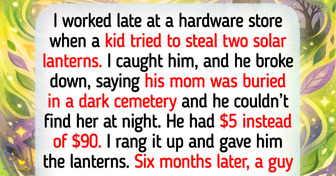Too many kids think their parents are a bank. It's time parents put their foot down and say "No". It's time for the kids to grow up and take care of themselves. I'm glad you took that step.
I Refused to Co-Sign My Son’s Loan—Being a Parent Doesn’t Mean Being His Bank
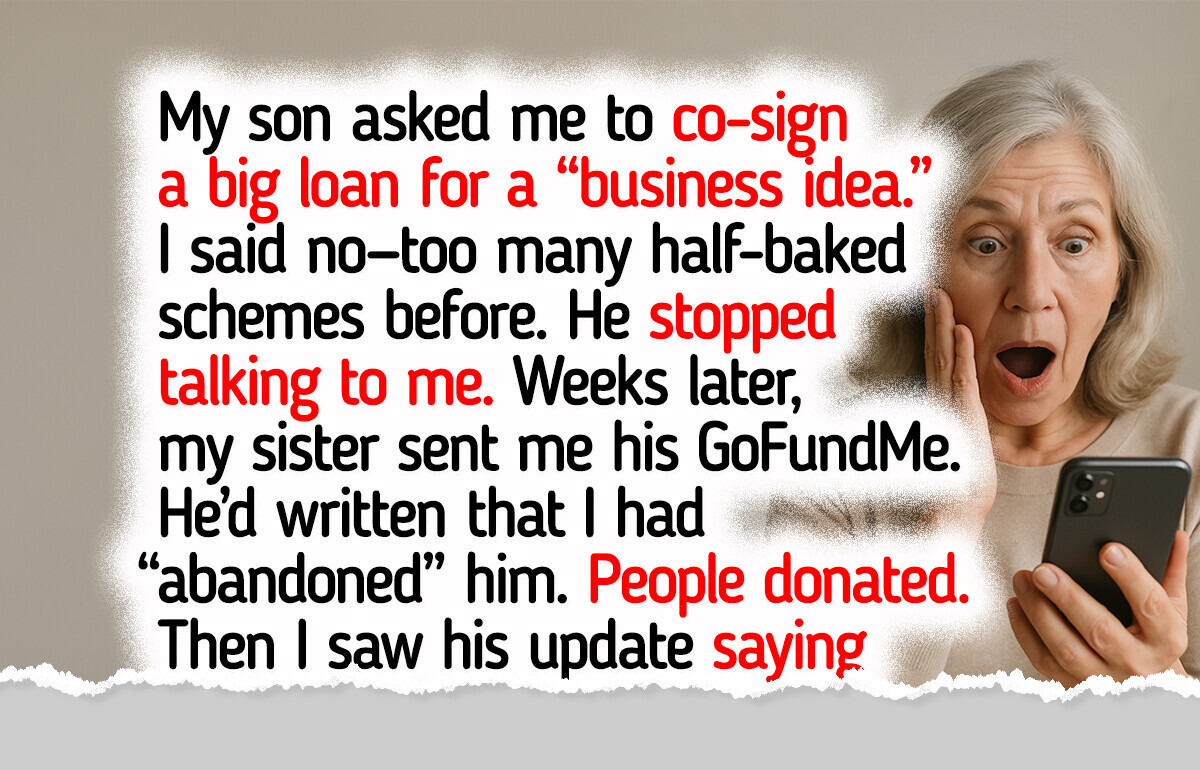
We recently received a letter from a reader who shared a difficult, emotional parenting moment—the kind that splits families, sparks judgment, and leaves lasting scars. But as she told us, sometimes the kindest thing a parent can do is nothing at all.
The letter

“When my son asked me to co-sign a large loan ‘just to help him qualify,’ I hesitated. He said it was for ‘a business opportunity,’ but I knew his version of business usually meant crypto, drop-shipping, or gaming apps.
I said no.
He exploded. Called me controlling, selfish, said I ‘never supported his dreams.’ Then he stopped speaking to me.
A month later, my sister forwarded me a GoFundMe link. He’d posted a long sob story, claiming I’d ‘abandoned’ him and ‘left him in debt.’ Friends, strangers—even extended family—had donated. Thousands.
Then I saw the update: ‘Thanks to everyone’s kindness, I made it! Launching soon!’
I didn’t comment. I didn’t donate. But I quietly reported the fundraiser. Why?
Because I’d learned through a mutual friend what he really spent the money on: a luxury vacation in Bali and a rented Tesla ‘to feel successful.’
He still doesn’t talk to me.
And I still don’t regret saying no.
Sometimes the hardest parenting move is letting your kid fall—without padding the ground beneath them.”
Thank you for reaching us!
Why Saying “No” Can Be the Bravest Parenting Act.
Saying “no” to your child isn’t about withholding love—it’s about reinforcing healthy boundaries and accountability.
- Nearly 79% of parents who helped adult children financially did so at the expense of their own finances
- 68% of parents of grown children reported making financial sacrifices—like dipping into savings or retirement—to support their kids.
- Yet 77% of parents now set conditions on financial help, such as requiring employment or a repayment plan.
- 83% of supporting parents contribute to their adult kids’ monthly groceries.
- 65% help with cell phones, and 46% pay for vacations.

Helping your adult child doesn’t mean saving them from every crisis. When support becomes constant rescuing, it can unintentionally encourage dependency. Parents may enable this out of guilt or the need to feel needed, but it often leads to emotional burnout and resentment.
Setting limits—even when it’s difficult—is sometimes the most loving thing you can do. Say, “I’m here to support you, but you need to take responsibility too.” This empowers your child to develop independence and resilience.
Here are a few helpful strategies:
Don’t give immediate answers—pause to reflect before agreeing to help.
Set clear expectations and time limits for financial or housing support.
Avoid giving money unless there’s a solid plan for independence.
Encourage contribution to household costs if they live at home.
Be okay with not being liked. Rejection may come now—gratitude may follow later.
Your role isn’t to remove every obstacle. It’s to help them learn how to navigate life on their own. Sometimes that means stepping back, not stepping in.
I Removed My Daughter From My Will and Left Her Exactly What She Left Me
Comments
Related Reads
I Refuse to Forgive My Husband for the Child He Conceived Without My Consent
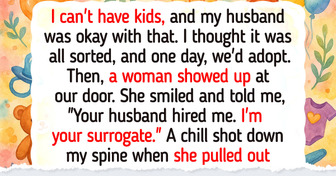
I Reported My Childfree Coworker to HR, She Kept Shaming Me for Having Kids
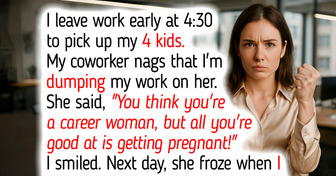
14 Real Moments When Empathy Changed Everything Forever
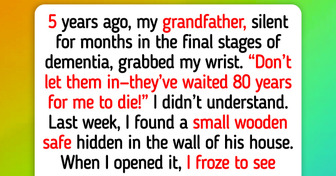
12 Moments of Kindness More Rare Than a Solar Eclipse That Show a Kind Heart Can Change the World
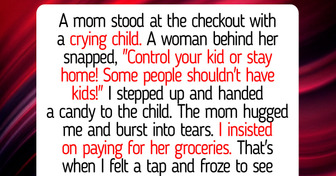
10 Christmas Gifts That Missed the Mark So Badly They Became Legendary

12 Times Kindness Lit Up the Dark
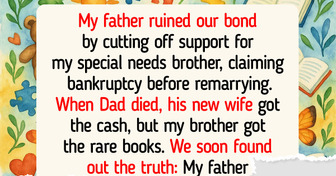
I Canceled My Sister’s Free Childcare—Her Cruel Words Cost Her My Support
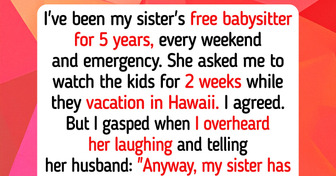
16 Families Whose Everyday Life Is Basically a Sitcom
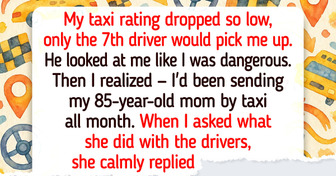
I Refuse to Support My SAHM Wife After Discovering Her Secret

My Daughter Disrespected My Sacrifices—And I Refused to Let It Slide
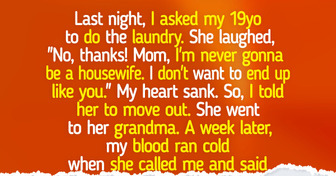
I Refused to Let My DIL Walk All Over Me in My Own House—Then She Went Too Far
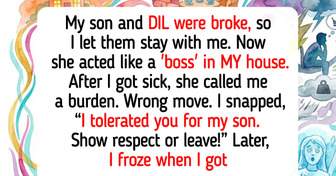
18 Stories Where Kindness Made It Human Again
